Nội Dung Chính
(Page 128)
This unit includes:
LANGUAGE
Pronunciation
Intonation in questions (revision)
Vocabulary
Phrases related to lifelong learning
Grammar
Reported speech: reporting orders, requests, offers, and advice
SKILLS
Reading: Reading for main ideas and specific information in a head teacher's message to school-leavers
Speaking: Talking about great role models for lifelong learning
Listening: Listening for main ideas and specific information in a talk about the challenges of lifelong learning
Writing: Synthesising and summarising information to write an article about the benefits and challenges of lifelong learning
COMMUNICATION AND CULTURE / CLIL
Everyday English
Thanking and accepting thanks
Culture
One of the oldest university graduates
PROJECT
Creating a leaflet about a lifelong learning habit

I. GETTING STARTED
Learning for life
1. Listen and read. 🎧
Mark: Hello, Grandma!
Grandma: Oh hi, Mark. I'm glad you're here! Can you help me increase the font size of this text on my laptop? It's too small for me to read.
Mark: Let me show you ... You need to press these two keys together... See? It's easy, isn't it?
Grandma: It works! Everything's so easy to read now. Thanks, dear. I still have trouble using the laptop. You know, it's taken me so much time to learn computer skills.
Mark: That's fine, Grandma. My teacher says it's never too late to learn something new, especially new technology, because it's rapidly developing. Grandma, you've typed a lot of text! What are you working on?
(Page 129)
Grandma: Well, I'm writing a summary of a book I've read recently. You see, my doctor advised me to read every day to boost my memory. And I want to brush up on my French before I visit my friend in Paris.
Mark: You're amazing, Grandma! Learning languages can improve your thinking skills. Our language teacher has also asked us to try to maintain our language skills after leaving school. Do you know that you can use the Internet to learn a language or watch the news?
Grandma: Really? This could help me stay informed about current events. Can you show me some news sites after I finish my book summary?
Mark: No problem, Grandma. But why do you have to type it?
Grandma: It's for the reading club I've just joined. The club leader encourages us to prepare our book reports and share them with all members in advance.
Mark: Are all club members your age?
Grandma: No, there're some young people as well. Are you interested in joining the next meeting?
Mark: Yes, I'd love to.
Grandma: OK, I'll put your name on the list of attendees then.
2. Read the conversation again. Decide whether the following statements are true (T) or false (F).
| T | F | |
| 1. Mark's grandma is very good at using technology. | ||
| 2. Mark's grandma is working on a book summary for her reading club. | ||
| 3. After typing up her book report, Mark's grandma will learn how to make the text size bigger on her laptop. | ||
| 4. Mark wants to attend the next meeting of his grandma's reading club. |
3. Find words and phrase in 1 with the following meanings.
| 1. b_____ | to make something become better |
| 2. b_____ u_____ (on) | to practise and quickly improve a skill or knowledge of something learnt in the past |
| 3. m_____ | to make something continue at the same level |
| 4. i_____ | having a lot of knowledge about something |
4. Match the beginnings with the endings to make complete sentences.
| 1. The doctor of Mark's grandma advised her | a. to put his name on the list of attendees. |
| 2. Mark's language teacher has asked him | b. to read every day to boost her memory. |
| 3. The club leader encourages members | c. to try to maintain his language skills after leaving school. |
| 4.Mark's grandma offered | d. to prepare their book reports in advance. |
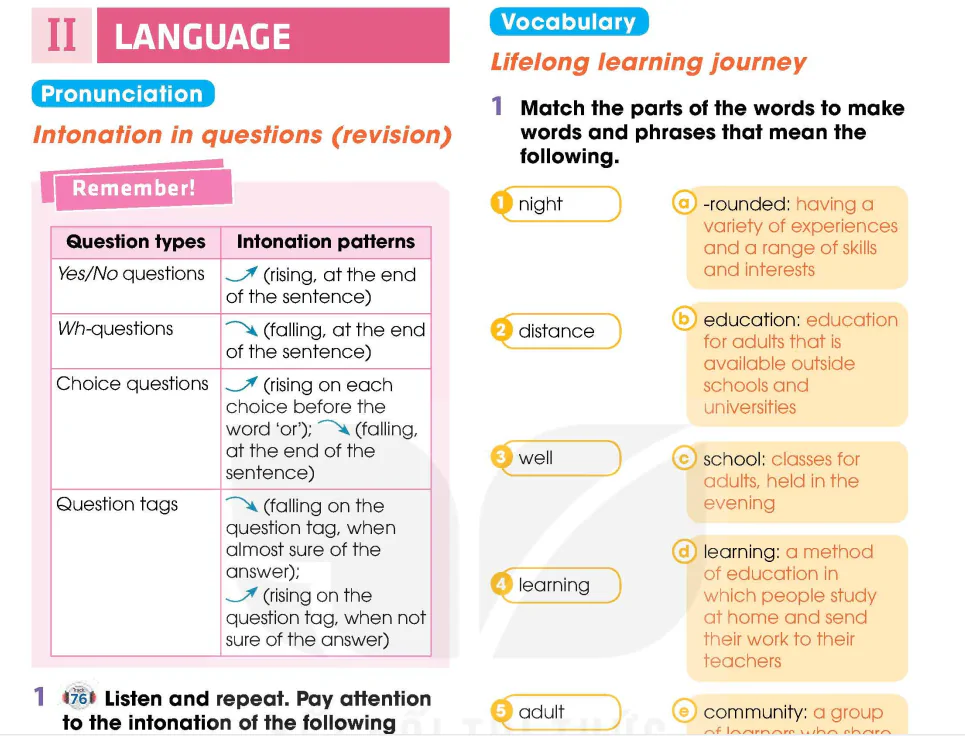
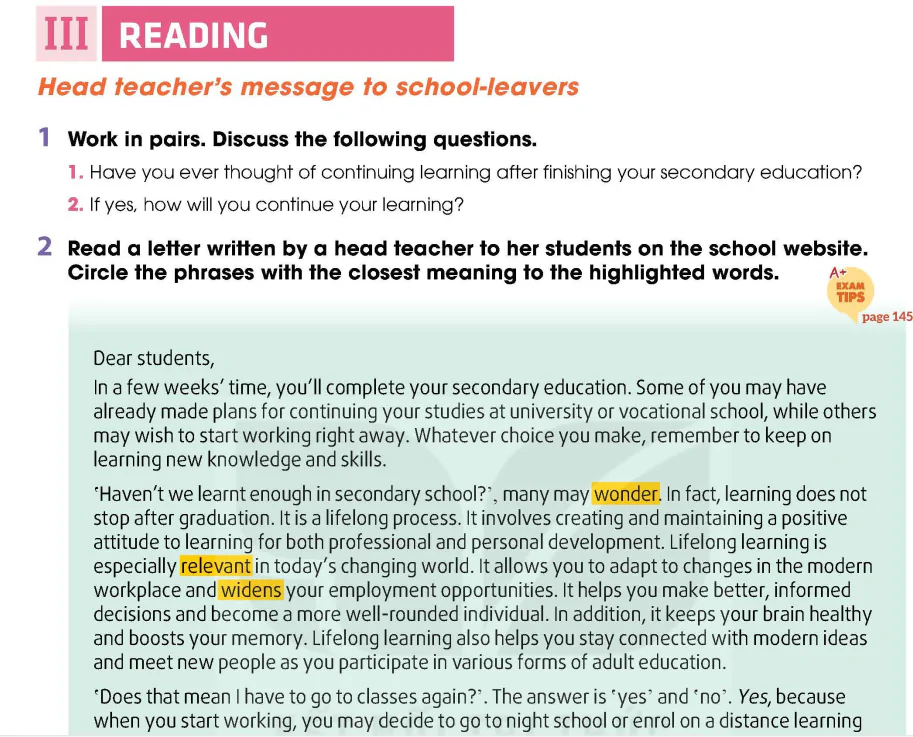
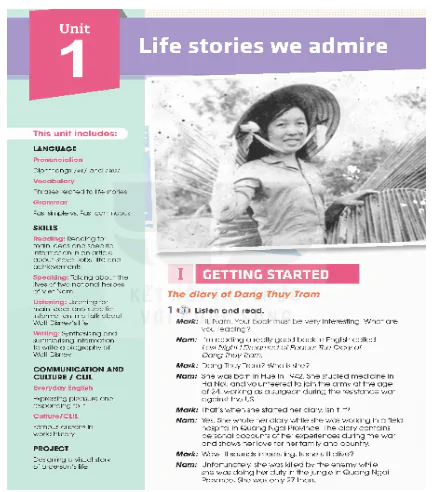
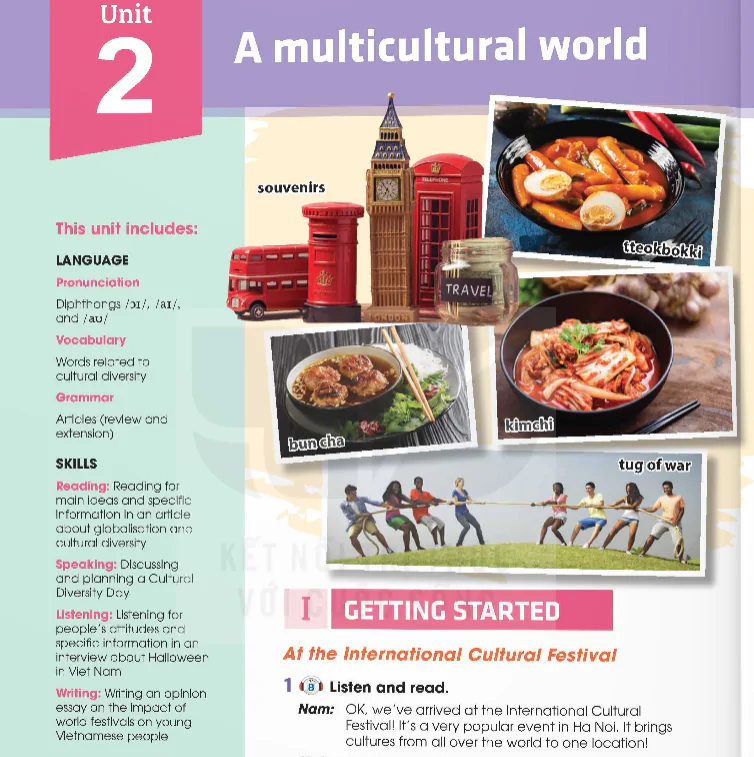
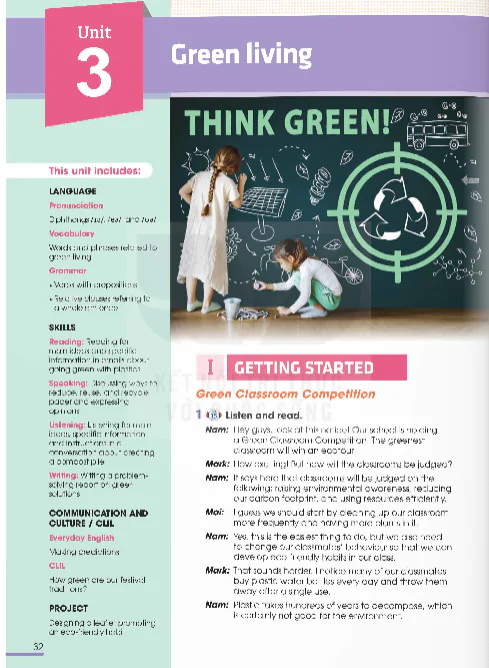
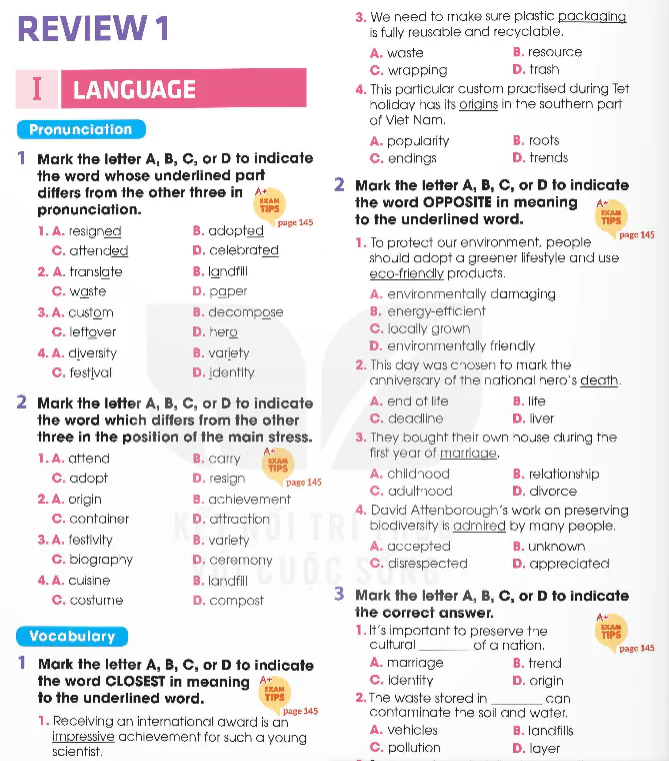
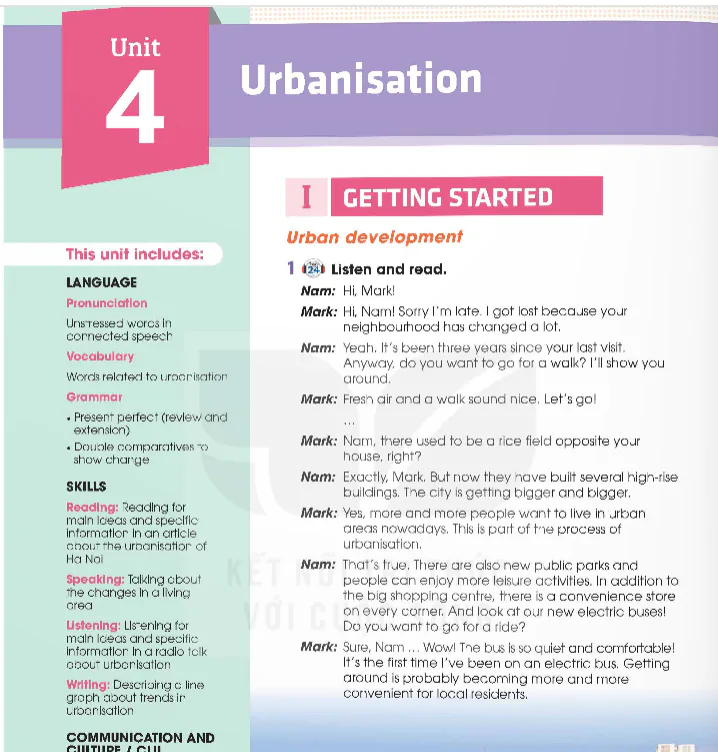
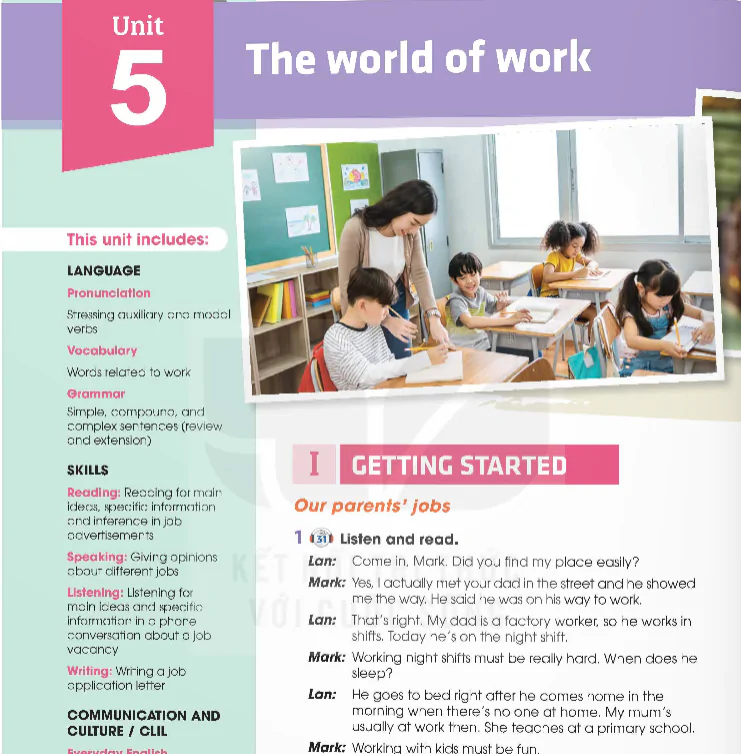
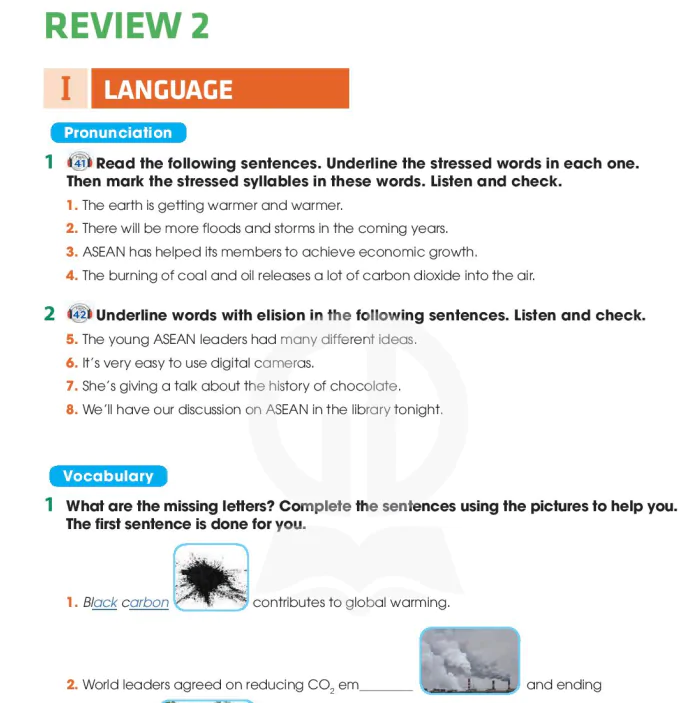
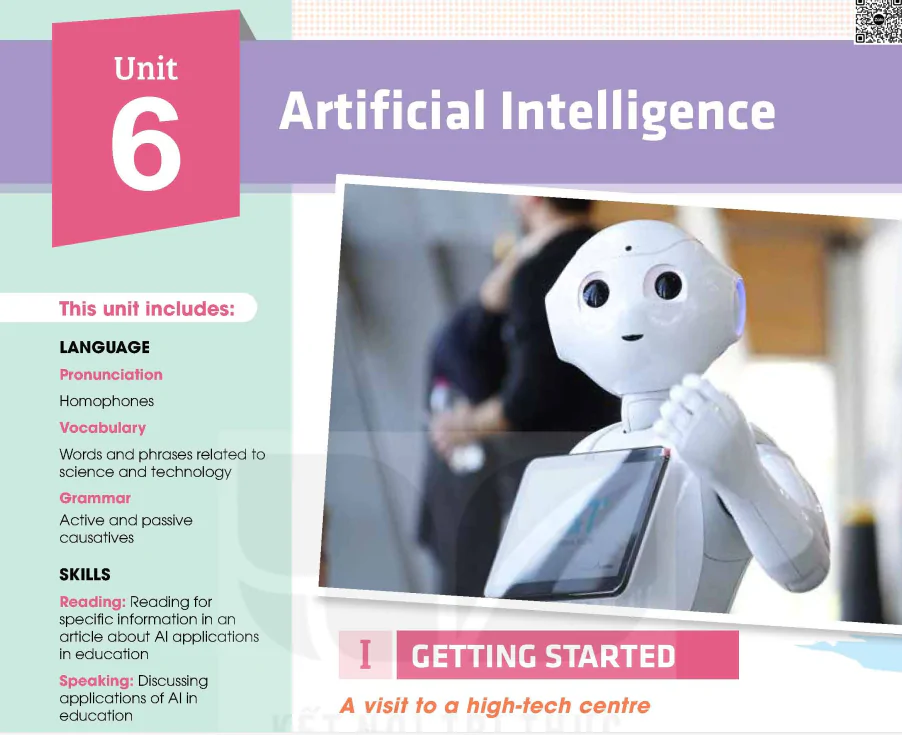
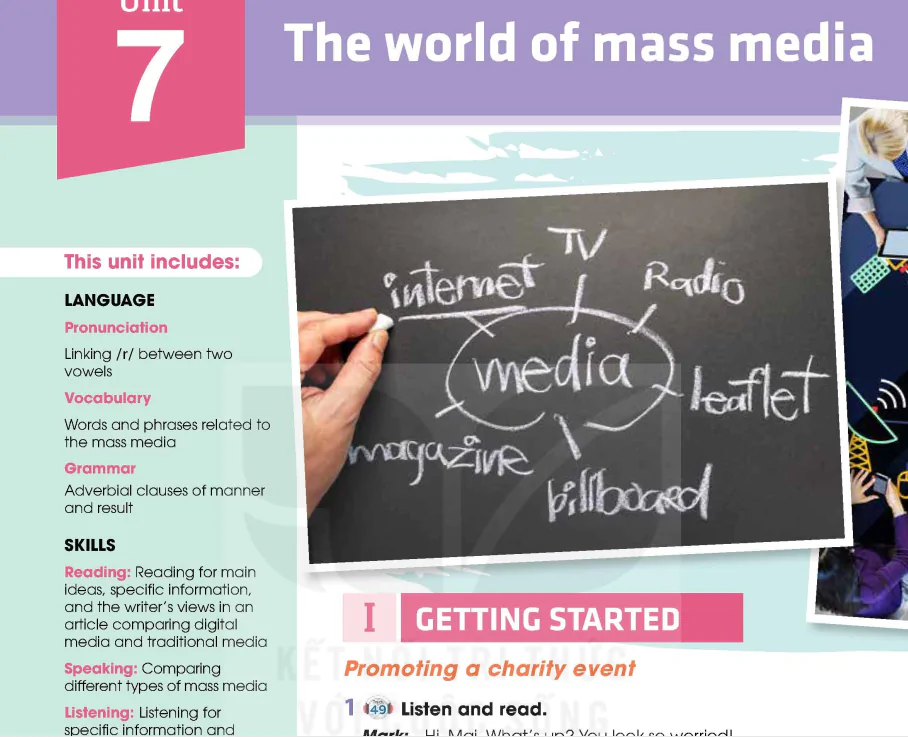
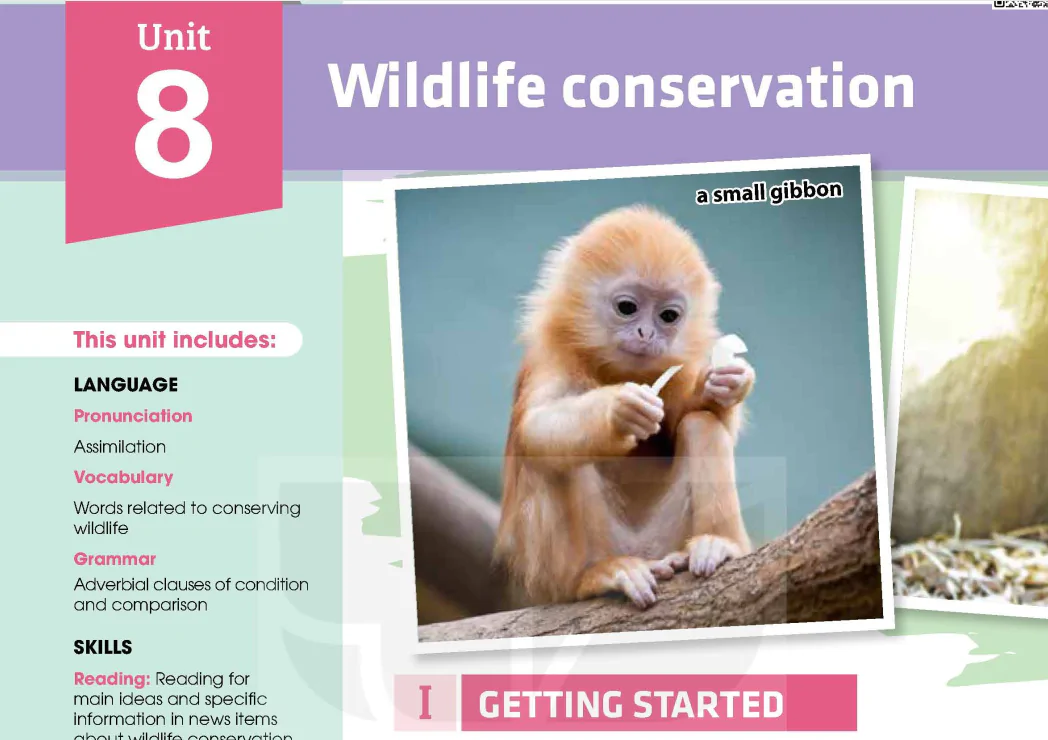
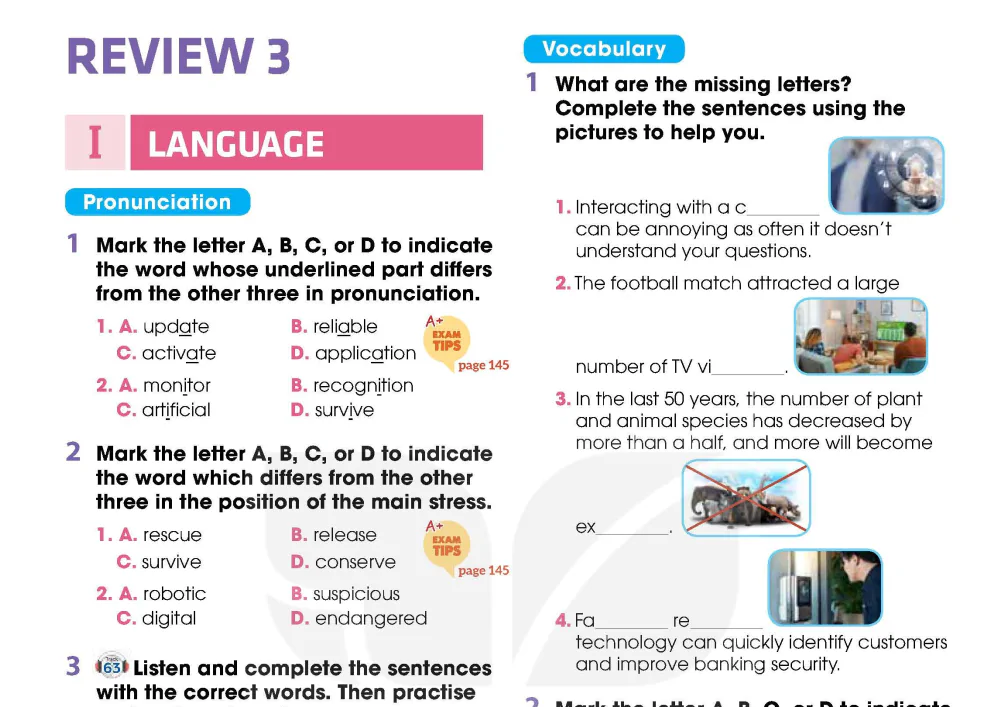
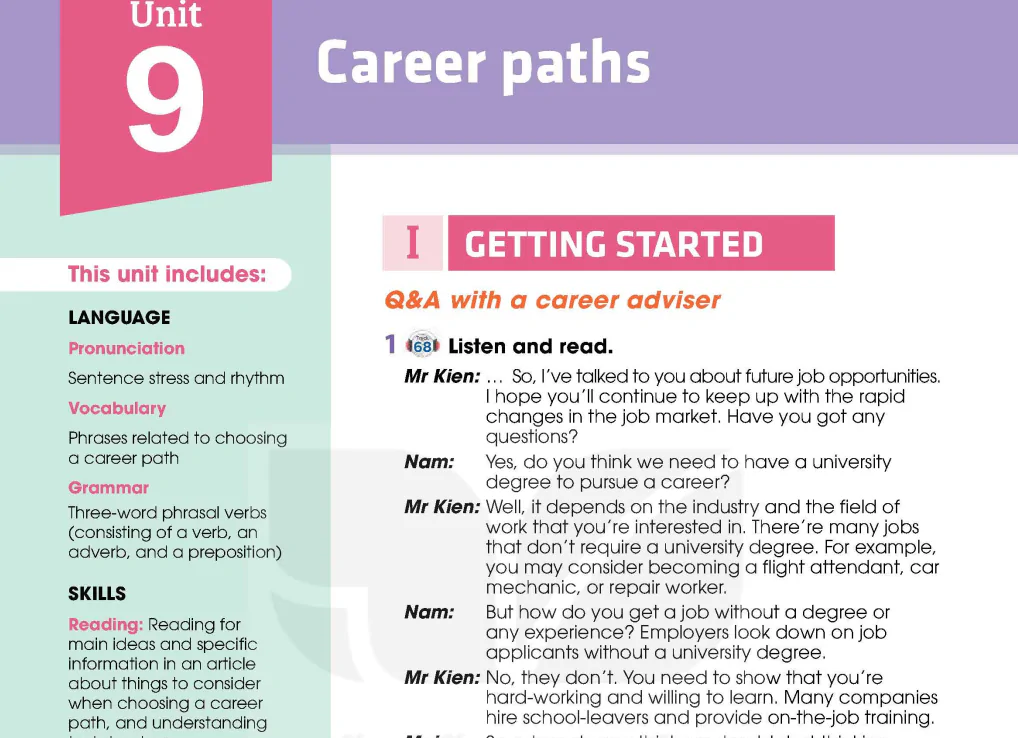
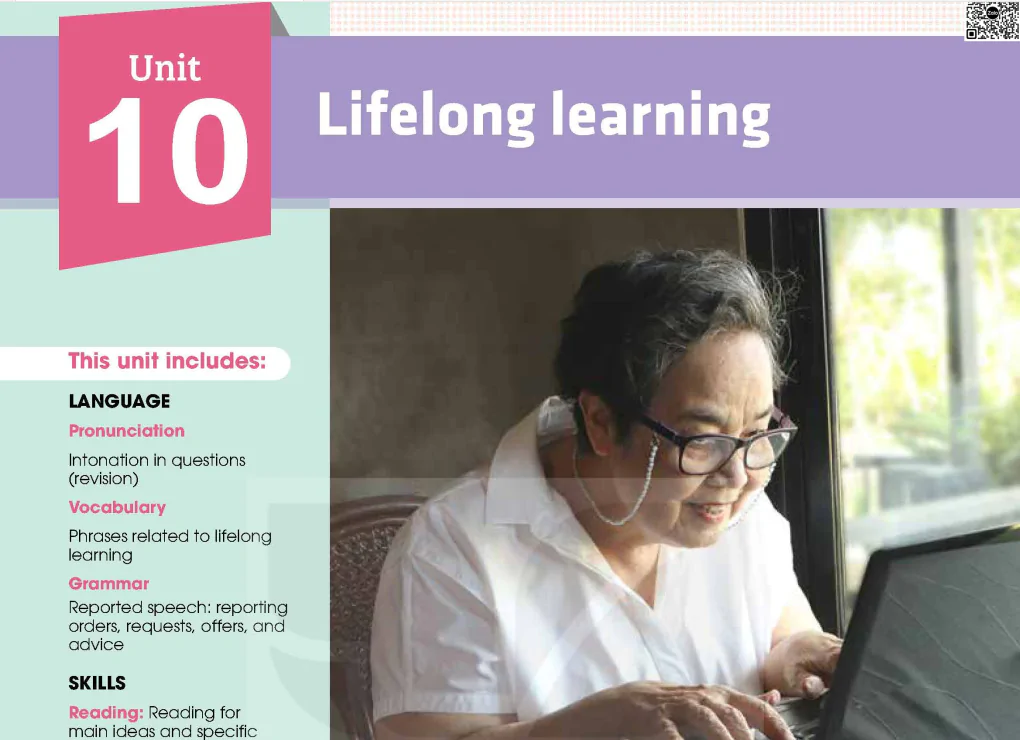
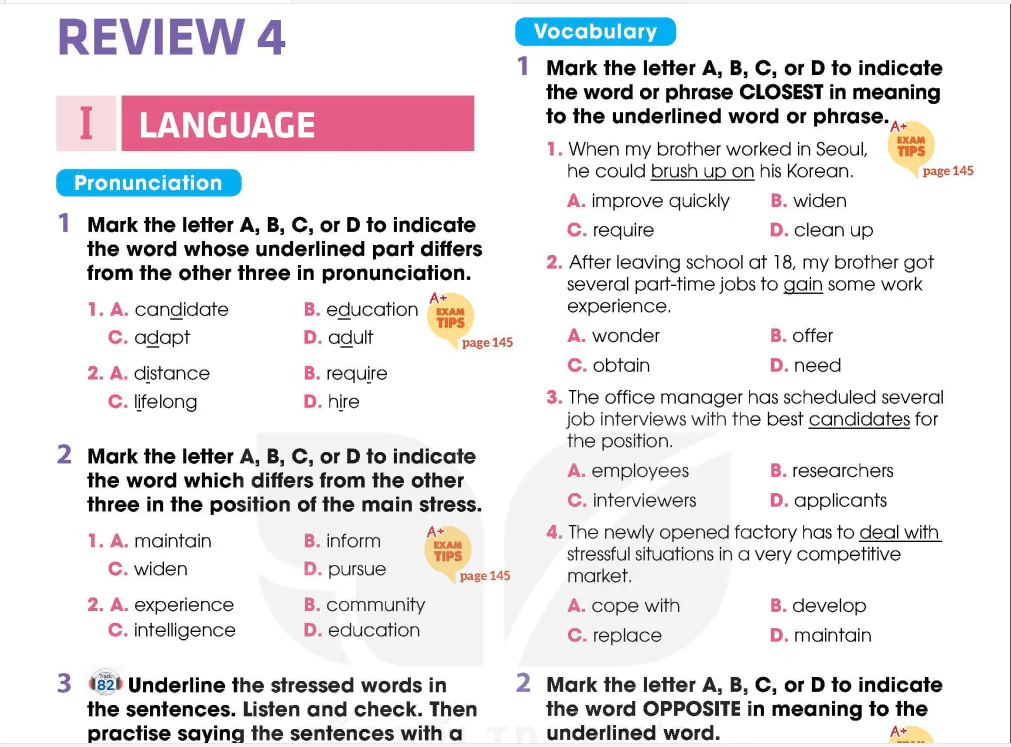
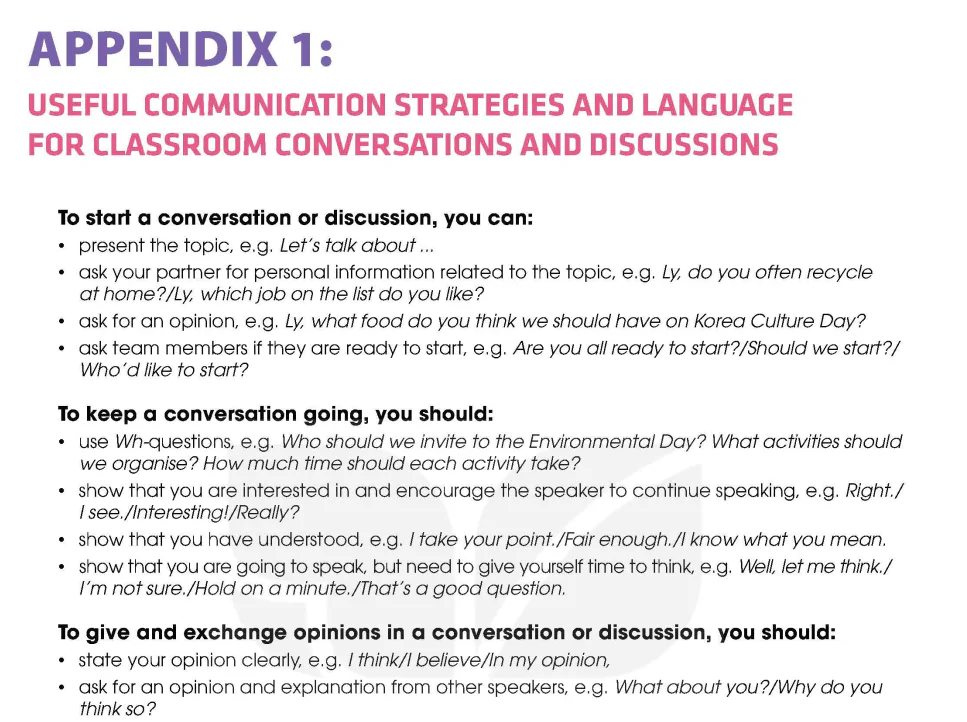
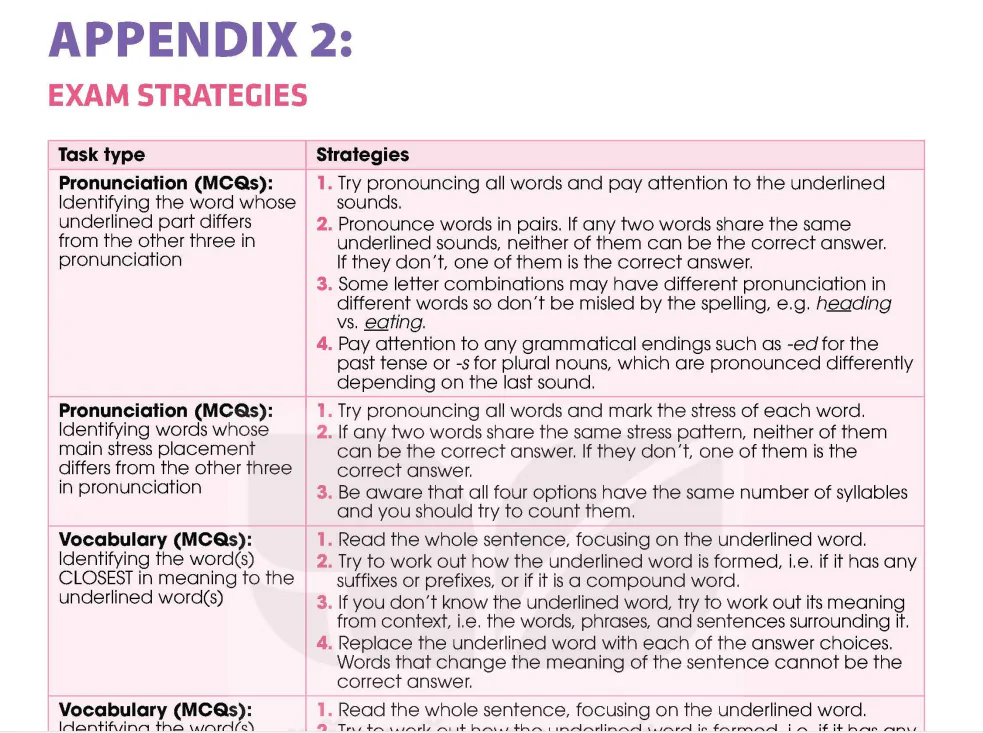
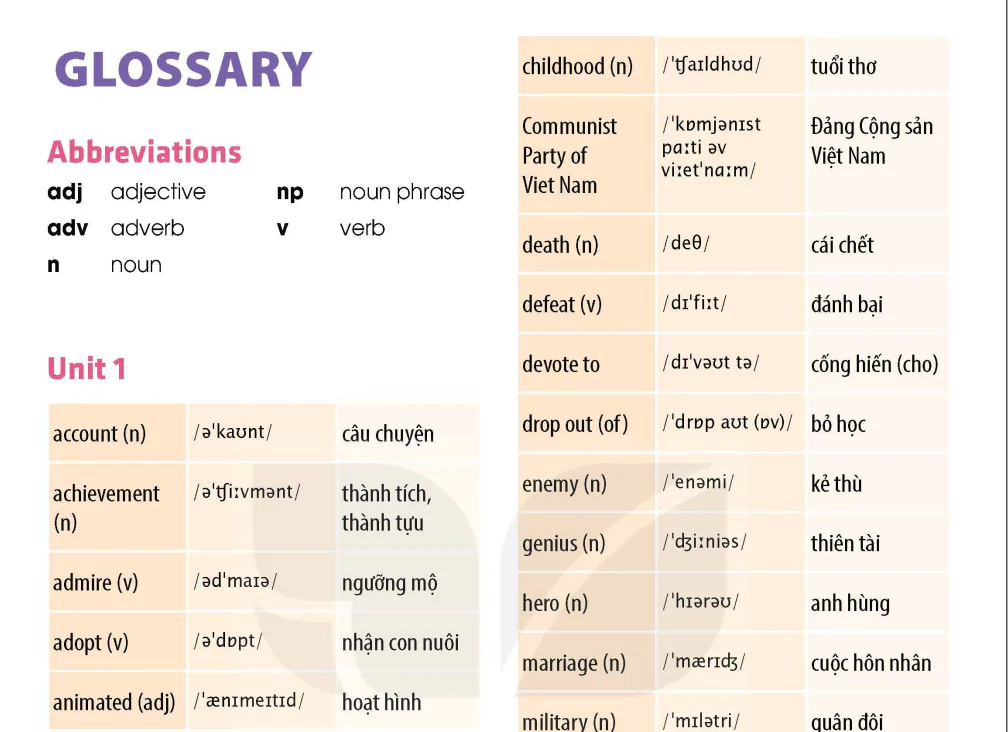


















Bình Luận
Để Lại Bình Luận Của Bạn